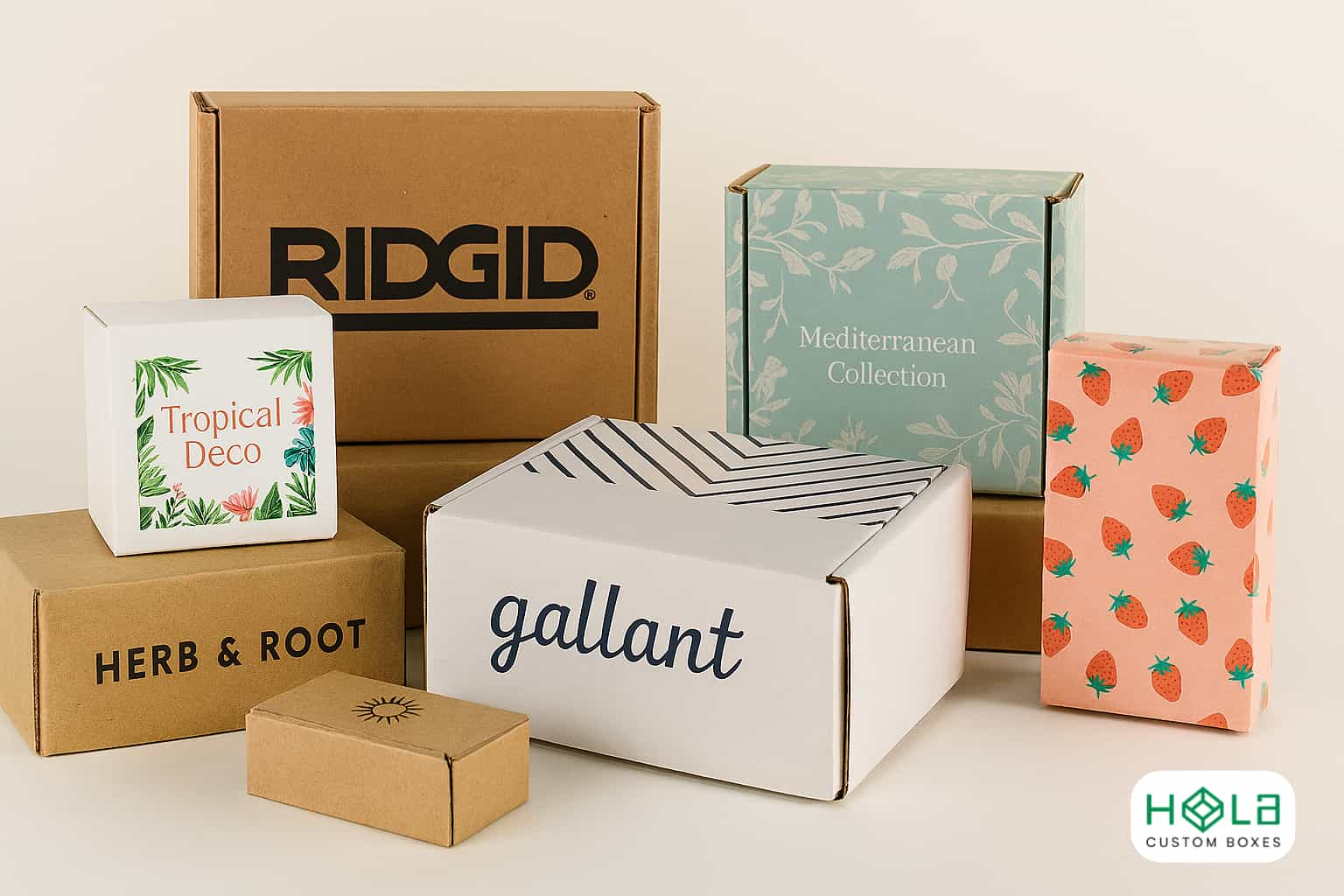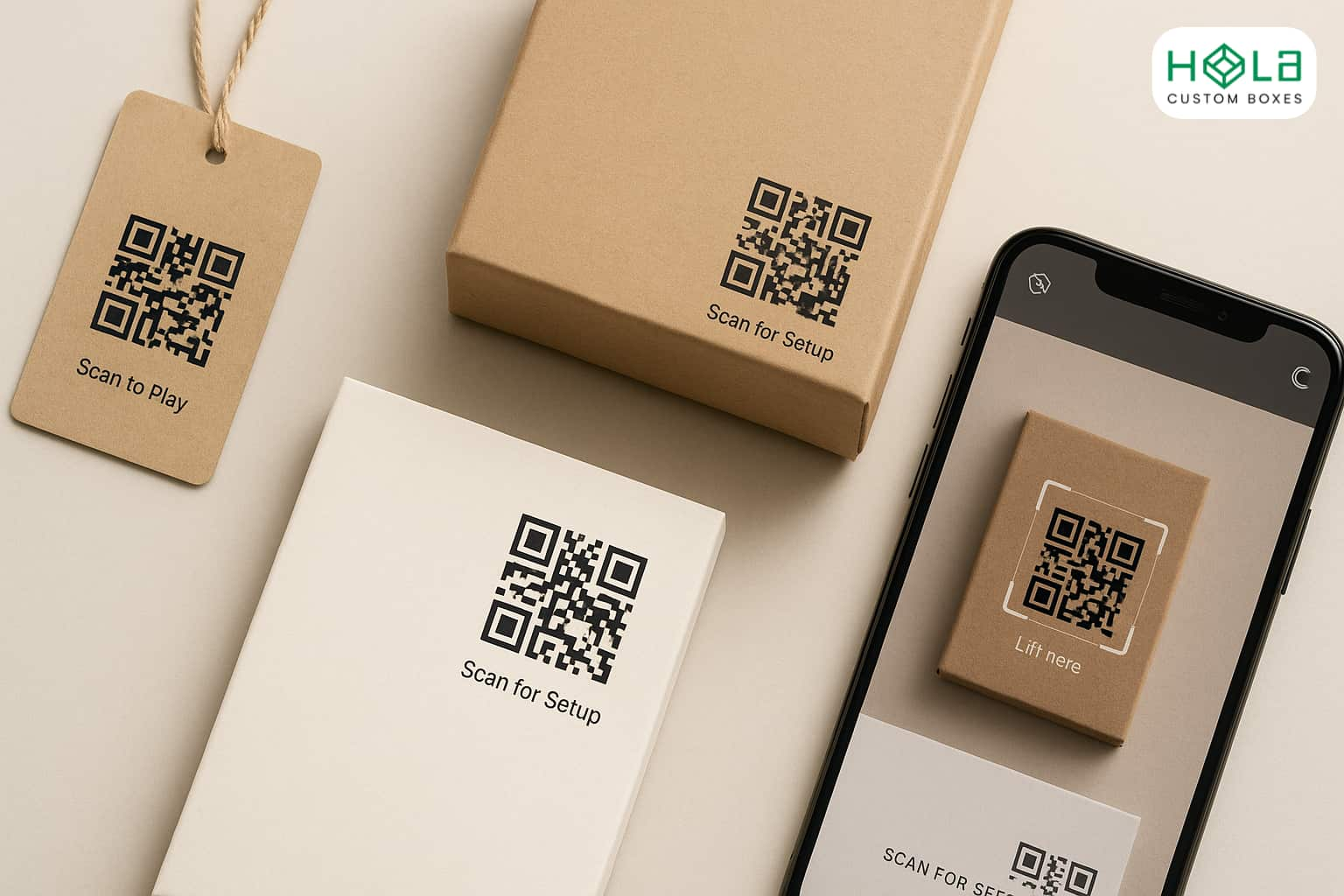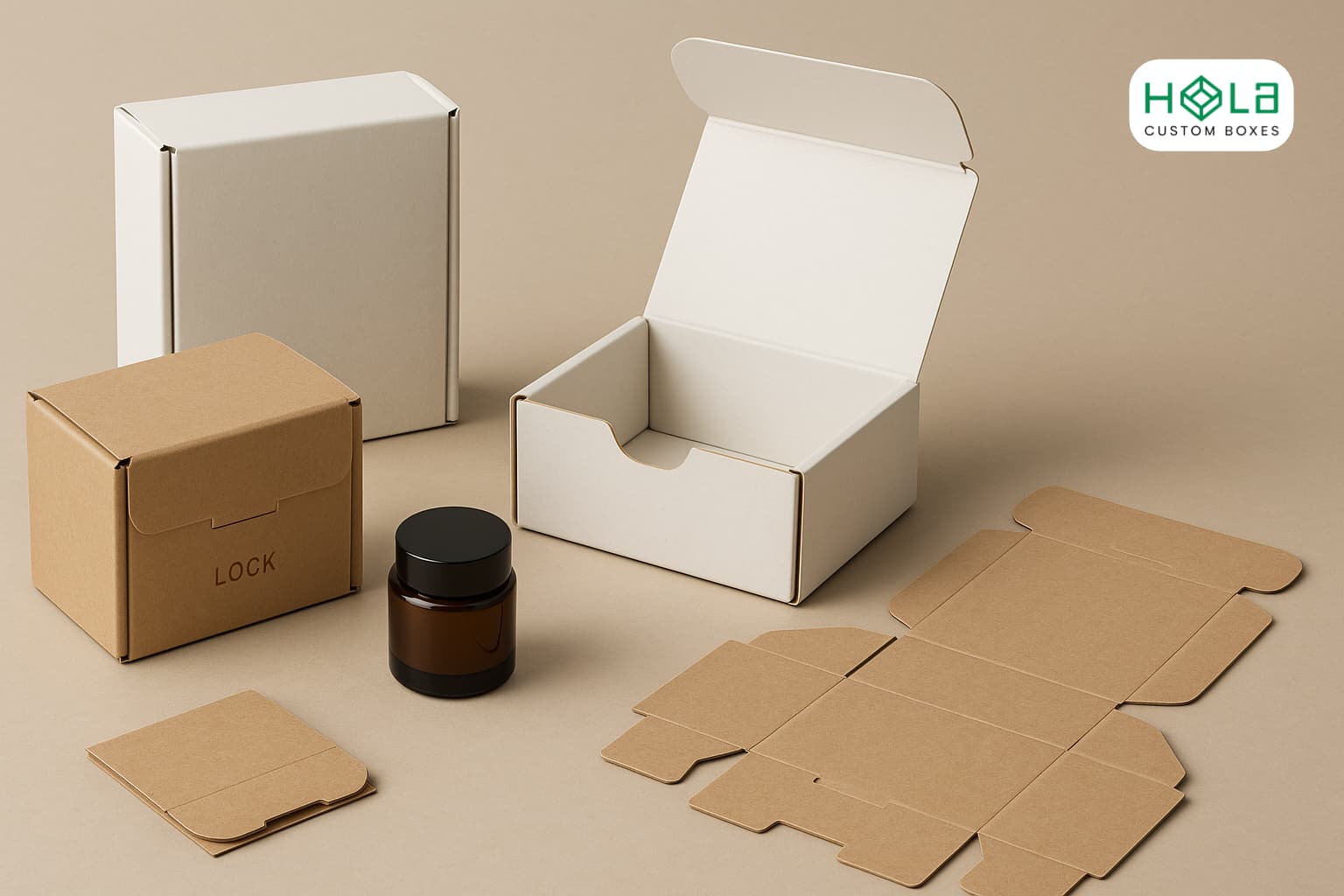Best Custom Packaging for Shopify Stores in the USA: Options, Pricing, and Vendors
2025-11-28 10:03:34
Best Custom Packaging for Shopify Stores in the USA: Options, Pricing, and Vendors
If you run a Shopify store in the U.S., custom packaging can lift AOV and retention while costing as little as $0.08 for poly mailers to $2.20 for mailer boxes. Your choices—digital vs. flexo print, kraft vs. compostable—affect MOQs, lead times, and total landed cost. Vendors range from low-MOQ online platforms to local corrugators with volume pricing. The smartest pick balances brand impact with unit economics—here’s how to choose without overspending.
Main Points
- Choose formats by product and budget: poly mailers ($0.08–$0.25), padded mailers ($0.20–$0.55), mailer boxes ($0.70–$1.60), RSC shippers ($0.65–$2.20).
- Match printing to volume and quality: digital for low MOQs, flexo for scale, litho-lam for premium, with plate/die fees and 2–4 week leads.
- Model actual landed cost: include unit, inserts, freight, duties, warehousing, defects, and stockout risk; domestic wins on speed and quality control.
- Negotiate price breaks at 5k–10k units, tool amortization, and annual rebates; right-size boxes and reduce colors to cut costs.
- Consider vendors by need: digital-first for fast iterations, regional corrugators for flexo value, litho specialists for giftable DTC boxes, hybrids for price hunting.
Why Custom Packaging Matters for Shopify Stores

Although it’s easy to treat packaging as an afterthought, custom packaging directly influences conversion, AOV, retention, and unit economics for Shopify stores. Our team pairs design expertise with high-quality materials and rigorous quality checks to deliver durable packaging that protects products in transit and enhances brand perception.
You’re selling an experience, not just a SKU. Branded packaging can lift add-to-cart and checkout completion by signaling quality and reducing perceived risk.
Post-purchase, it drives repeat orders: surveys show 40–60% of customers are more likely to repurchase after a premium unboxing. It also reduces damages and returns, preserving margin.
Run the math: if custom packaging adds $0.60 per order while lifting AOV by 3% on a $70 baseline, you net +$1.50 in revenue before LTV gains.
Negotiate MOQs, print methods, and lead times to avoid cash burn. Track CAC/LTV by packaging cohort, unboxing UGC rates, damage rate, and return reasons.
For long-term gains, consider eco-friendly materials that support sustainability, enable premium finishes like matte or UV coating, and offer scalable MOQs for both small and wholesale orders.
Types of Packaging: Mailers, Boxes, Inserts, and Accessories
With the economics clear, you need the right mix of packaging formats to hit brand goals without bloating COGS. Start by mapping SKU size, fragility, and AOV to formats. Poly mailers run $0.08–$0.25 and cut DIM weight; padded mailers land $0.20–$0.55 for soft protection. Rigid mailer envelopes suit prints at $0.30–$0.70. Tab-lock mailer boxes cost $0.70–$1.60; shipper RSCs span $0.65–$2.20, optimized for 3–5 day ground. To speed decisions and reduce risk, request free digital proofs with 2D/3D views before production.
| Format | Typical Use | Cost Range |
|---|---|---|
| Poly/Padded Mailers | Apparel, soft goods | $0.08–$0.55 |
| Mailer Boxes | DTC unboxing, kits | $0.70–$1.60 |
| Shipper Boxes (RSC) | Bulk, 3PL picks | $0.65–$2.20 |
| Inserts/Accessories | Protection, branding | $0.03–$0.45 |
Inserts matter: tissue ($0.05–$0.15), void fill ($0.08–$0.20 per pack), corrugate dividers ($0.12–$0.35), thank-you cards ($0.03–$0.08). Add stickers/tape for low-cost branding. Leverage tiered MOQs, plate-free digital print, and 3PL pack fees to model landed cost per order. For fast brand alignment without high MOQs, consider custom sizes with eco-friendly Kraft and CMYK/Pantone print, plus free 2D/3D proofs before production.
Materials and Sustainability: Kraft, Recycled, Compostable, and More

Because material choice drives both cost and carbon, you should compare substrates by unit price, printability, strength, and end-of-life. Kraft boxes made from recycled cardboard support reuse and recycling, reinforcing eco-friendly packaging benefits.
Kraft corrugate is the baseline: affordable, durable, and widely recyclable curbside. Recycled content (30–100%) reduces virgin fiber use but can raise price 5–12% and slightly lower burst strength. Compostables (PLA, PBAT blends) signal eco-leadership, yet cost 20–40% more and require certified facilities.
Paper mailers and molded fiber cut DIM weight and ship flat, reducing freight costs. Ask vendors for FSC/SFI certifications and post-consumer percentages.
- Kraft boxes: $0.40–$1.10/unit; high strength; CMYK acceptable.
- 100% recycled: add $0.05–$0.20/unit; suitable for B2C.
- Paper padded mailers: $0.18–$0.65; curbside recyclable.
- Compostable poly: $0.20–$0.55; needs industrial composting.
- Water-activated tape + recycled liners: reduce plastic, improve seal.
You can also request free digital proof previews (2D and 3D) and low minimums to validate print quality and fit before scaling orders.
Printing Methods: Digital, Flexo, Litho-Lam, and Foil
Even if your box structure is locked, print method choices can swing unit cost, lead time, and brand impact.
Digital excels for short runs and frequent artwork changes; you’ll get CMYK, photo-grade detail, variable data, and zero plates. It’s efficient for 1–1,000 units and test launches. You can also request a free digital proof with 2D and 3D mock-ups before production to validate color and layout.
Flexo wins on volume: low ink cost, fast machines, and durable spot colors. It favors simple art, solid fills, and kraft.
Litho-lam delivers retail polish—high-res sheets mounted to corrugate, with tight registration and special coatings—ideal for giftable DTC boxes. It carries higher setup but premium finish.
Foil stamping adds perceived value and tactile pop; use it for logos or accents, not full floods.
Ask vendors for print samples, line screens, and color drawdowns to validate quality.
For tailored guidance on box styles, print options, and timelines, contact our customer support at (682) 297-5757 or [email protected].
Pricing, MOQs, and Lead Times: What to Expect
Before you request quotes, anchor expectations: custom corrugated mailers typically land at $1.20–$4.50 per unit at 1,000–5,000 qty, rising 20–60% at 100–500 due to setup amortization. Choose materials that align with your brand values; using recyclable materials can appeal to eco-conscious consumers while enhancing perception without significant cost increases.
Expect $1.20–$4.50 per mailer at 1k–5k; 20–60% higher at 100–500 due to setup.
You’ll also see coatings, inserts, and upgraded board weights push costs another 10–35%. Factor freight: dimensional weight can add $0.05–$0.40 per unit.
- MOQs: digital runs often start at 100–250; flexo 500–1,000; litho-lam 1,000–2,500+.
- Lead times: stock print plates 8–12 business days; custom plates 2–4 weeks; peak seasons add 1–2 weeks.
- Plate/die fees: $75–$400 per color (flexo), $300–$900 for cutting dies; amortize across units.
- Reorders: 3–7 business days faster if plates/dies stored.
- Price brakes: expect 8–15% savings stepping from 500→1,000, 10–20% from 1,000→2,500.
Lock proofs early, approve dielines fast, and time buys before Q4 congestion.
Vendors like Hola Custom Boxes emphasize quick responses and direct support via phone number, helping you lock specs and timelines faster.
U.S.-Based Vendors to Consider
Start with a short list of proven U.S. converters that balance speed, print quality, and landed cost: digital-first shops like Hola Custom Boxes, Packlane, and WOW Cosmetic Boxes for low MOQs and fast art changes; regional corrugators such as Pratt, WestRock, and Georgia-Pacific plants for flexo efficiency at 1,000+; and specialty litho-lam houses like JohnsByrne or Epoch for high-fidelity branding at scale. You’ll want quotes that show print method, board grade, dieline size, ink passes, and freight. Target $1.20–$2.80 for printed mailers at 1,000–2,500; $0.55–$1.10 for one-color shipper boxes at 1,000+; and 10–15 business days after art approval.
| Vendor Type | Best For |
|---|---|
| Digital-first | Low MOQs, rapid revisions |
| Regional corrugators | Flexo cost at volume |
| Litho-lam specialists | Premium brand color |
| Hybrid brokers | Multi-plant price hunting |
Choosing Local vs. Overseas Suppliers and Cost-Saving Strategies
While offshore quotes can look irresistible, you’ll only win if total landed cost and lead-time risk beat a U.S. plant’s. Compare unit price, freight, duties (3%–9% common), brokerage, buffer inventory, and defect rates. Air can erase savings; ocean adds 25–45 days. Domestic wins on speed, MOQ flexibility, and easier QC; overseas wins at scale with stable forecasts.
- Model landed cost: unit + pack-inserts + ocean/air + duty + drayage + customs + warehouse + safety stock.
- Quantify risk: assign cost per day of stockout and per percent defect; add to overseas scenario.
- Negotiate: ask for price breaks at 5k/10k, tool amortization, and annual rebates.
- Engineer cost out: right-size boxes, reduce colors, switch to kraft.
- Hybrid strategy: print domestically, bulk-run inserts offshore.
Frequently Asked Questions
How Do I Design Unboxing Experiences That Encourage Social Sharing?
Design unboxing for shareability by using bold inserts, QR codes, and limited-edition packaging; optimize cost with unit economics, MOQ tiers, and dieline efficiency. Track hashtag lift, UGC rate, and CPA impact. Partner with vendor kitting and eco-friendly materials.
What Packaging Sizes Fit USPS, UPS, and Fedex Dimensional Weight Tiers?
Use 8x6x4, 10x8x4, 12x10x4 to stay under USPS/UPS/FedEx DIM breakpoints; target ≤0.28 ft³. Keep weights dense. Verify carriers’ DIM divisors (USPS 166, UPS/FedEx 139), regional surcharges, and cubic USPS rates. Test-cartonize SKUs; negotiate custom tiers.
How Can Packaging Reduce Returns or Damage-Related Support Tickets?
You reduce returns by right-sizing boxes, using ISTA-certified mailers, and adding crush/void protection. Choose vendor drop tests, QR-labeled unboxing instructions, and resealable mailers. Track damage rate, RMA codes, and carrier claims; optimize dunnage mix to cut costs 10–25%.
Are There Tools to Simulate Dielines and 3D Mockups Before Ordering?
Yes. You can prototype dielines and 3D mockups with iC3D, Esko Studio, ArtiosCAD, and Boxshot. Many vendors offer free online editors (Packhelp, Packwire). Compare export formats, per-seat pricing, render realism, and prepress checks to minimize costly revisions.
How Do I A/B Test Packaging to Measure LTV and Repeat Purchase Impact?
Run a split shipment: randomize packaging A/B across cohorts, hold product/price constant. Track CAC, AOV, reorder rate, time-to-second-order, and 90/180-day LTV via Shopify + Cohort/Peel. Power-size samples, pre-register metrics, cap packaging CPM, and calculate incremental profit.
Final Thoughts
You’ll win with packaging that matches your brand, margin targets, and ops. Choose poly mailers (from $0.08), padded mailers, or mailer boxes (up to ~$2.20) based on weight, breakage risk, and AOV. Weigh digital low-MOQ speed against flexo/litho-lam unit costs at volume. Model total landed cost: print, freight, duties, QC, scrap, and returns. Shortlist U.S. vendors by lead time, print quality, and MOQs. Test samples, run pilots, and negotiate price breaks and freight.
